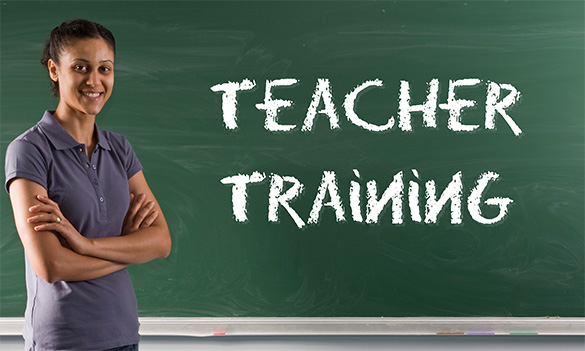0818 Work Insights
Your go-to source for the latest work trends, tips, and advice.
Teach Like a Pro: Secrets They Don't Tell You in Teacher Training
Unlock the hidden secrets to standout teaching! Discover expert tips that teacher training programs never reveal.
5 Classroom Management Secrets Beyond Teacher Training
Effective classroom management goes beyond the techniques taught in teacher training programs. One of the key secrets to success is establishing a strong classroom culture. This involves creating an environment where students feel valued and respected, which can significantly reduce disruptive behavior. Consider implementing strategies such as:
- Building relationships with students.
- Setting clear expectations and routines.
- Encouraging positive peer interactions.
When students understand the rules and feel a sense of belonging, they are more likely to engage actively in their learning.
Another crucial aspect of effective classroom management is the importance of flexibility and adaptability. While teacher training often emphasizes structured lesson plans, being able to pivot based on the needs of your students can lead to a more dynamic learning experience. For instance, if a particular lesson isn't resonating, consider:
- Incorporating hands-on activities.
- Utilizing technology for interactive learning.
- Providing opportunities for student input and feedback.
This responsiveness not only improves overall classroom dynamics but also fosters a positive learning environment where students feel empowered and motivated.

How to Engage Every Student: Tips They Didn't Teach You
Engaging every student in the classroom can often feel like a daunting task, especially when traditional teaching methods seem to fall short. To create a more inclusive learning environment, consider implementing differentiated instruction. This approach allows you to tailor your teaching strategies to meet the diverse needs of your students. For example, vary your teaching methods by incorporating visual aids, group activities, and hands-on experiences to cater to different learning styles. By doing so, you not only keep students interested but also foster a deeper understanding of the subject matter.
Another effective strategy is to incorporate student-led discussions into your lessons. When students take the lead, they become more invested in their learning. To facilitate this, establish clear guidelines that encourage respectful dialogue and active listening. You might also consider using tools like think-pair-share, where students first think about a question individually, then discuss it with a partner, and finally share their insights with the class. This method not only promotes engagement but also cultivates critical thinking and collaboration skills among students.
What I Wish I Knew Before My First Year of Teaching
Stepping into your first year of teaching can be one of the most exhilarating yet daunting experiences of your career. What I wish I knew before I began was the importance of building relationships with my students from day one. Establishing trust and rapport not only creates a positive classroom environment but also encourages open communication and engagement. I found that incorporating activities such as icebreakers and collaborative learning projects helped break down barriers and fostered a sense of community among my students.
Another critical aspect I wish I had understood earlier is the need for flexibility in lesson planning. The reality is that no matter how meticulously you plan, things may not always go as expected. Whether it's due to an unexpected school event, varying student comprehension levels, or even technological issues, being adaptable is key. What I wish I knew was to embrace these changes rather than stress over them. Keeping a growth mindset allowed me to turn challenging moments into learning opportunities, both for myself and my students.